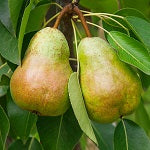
For some, organic farming and organic products are new ideas. For others, organic products and production have been part of their lives for years. For these folks (us included) organic production has long been seen as responsible production – proven, scientific, and part of a sustainable future. But even we were a bit surprised by two aspects of the organic world we didn’t know enough about.
The Unseen Organic

Certification is an expensive proposition. This isn’t the most visible aspect of the process, but it’s a big part of the organic commitment. For some, it’s too big. Farmers, especially, can find the financial burden of certification too much to carry in a profession that is often wildly uncertain. Not pursuing certification, though, doesn’t mean farmers don’t incorporate organic principles into their agricultural and production practices. In fact, many of them do.
What We’re Seeing

Our interaction with ingredient vendors over the past year has revealed a number of farmers who’ve become producers, offering non-certified, yet organically produced essential oils. Buying straight from the grower/producer – eliminating the middle man – made more than one otherwise expensive oil significantly less expensive. That fact alone made soap costs easier to manage for our customers.
This “unseen organic” might be the purest commitment any of us make, employing time-consuming and often expensive organic agricultural practices without getting any of the marketing benefits of certification. These are the commitments that deserve the most respect, commitments that acknowledge consequences of agriculture that extend beyond individual economic pursuits, consequences to overall soil and water health, to the larger community, and to the future of agriculture.
Organic Plus

Biodynamic agriculture can be traced back to the early 1900s, but it’s been in the news much more recently. We just got an email this week asking if we are interested in certified organic and certified biodynamic herbs. These days, you’ll see the biodynamic label on produce and packaged goods in stores that also sell organic products.
In fact, biodynamic and organic are linked. Products meeting biodynamic standards must first meet organic standards as established by the USDA’s National Organic Program. But there’s more. Here’s a general description from the Biodynamics Association: “Biodynamics is a holistic, ecological, and ethical approach to farming, gardening, food and nutrition … Biodynamic farmers strive to create a diversified, balanced farm ecosystem that generates health and fertility as much as possible from within the farm itself.Preparations made from fermented manure, minerals and herbs are used to help restore and harmonize the vital life forces of the farm and to enhance the nutrition, quality and flavor of the food being raised.” Whole Foods even has a Frequently Asked Questions page on biodynamic products.
Biodynamic Certification
Another way to look at biodynamics has much in common with organic. When you look at what it takes to become certified, what it means to be organic takes on a very specific meaning, The same is true for biodynamics. This page from the Demeter Association shows how certification requirements can make a picture very clear.
